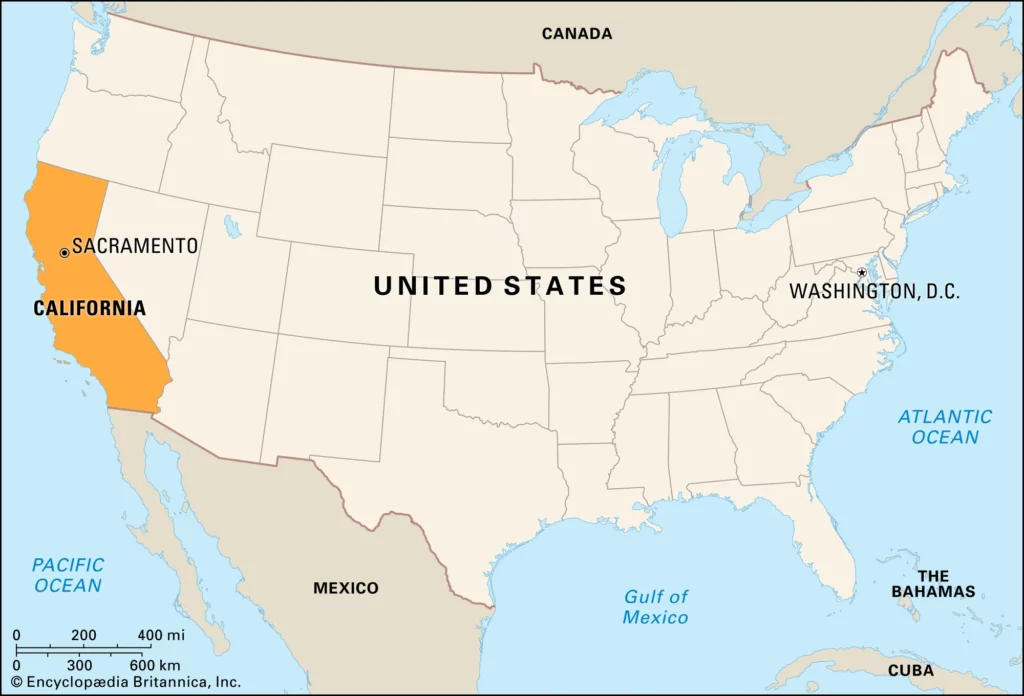
What is a Registered Agent in California?
In California, a Registered Agent serves as the official point of contact for a business entity, including corporations, limited liability companies (LLCs), partnerships, and other legal entities registered with the state. This agent is tasked with receiving important legal and tax documents on behalf of the business, such as service of process (legal actions), government communications, and notifications from the Secretary of State. The role of a Registered Agent is crucial for ensuring there’s a reliable method for the government and other entities to communicate with a business.
Key aspects of Registered Agents in California include:
Who Can Be a Registered Agent: A Registered Agent in California can be either an individual who resides in California or a business entity authorized to conduct business in California. The agent must have a physical address in the state (known as a registered office) and must be available during normal business hours to receive documents.
Legal Requirement: Appointing a Registered Agent is a legal necessity for conducting business in California. It ensures that the business can be contacted through formal channels if needed.
Privacy and Efficiency: For some businesses, using a professional Registered Agent service can help maintain privacy and ensure that important documents are handled efficiently and promptly, which helps in avoiding missed deadlines.
Changing a Registered Agent: Businesses can change their Registered Agent by filing the appropriate forms with the California Secretary of State and paying any necessary fees.
Public Record: The name and address of a business’s Registered Agent are part of the public record and can be found through the Secretary of State’s website. This transparency is important for maintaining public trust in the business environment.
How can I determine if my California business needs a Registered Agent?
In California, determining if your business needs a Registered Agent involves considering a few key factors. Here’s how you can determine if your California business requires a Registered Agent:
Business Entity Type: If your business is registered as a corporation, limited liability company (LLC), limited partnership (LP), or any other formal business entity with the California Secretary of State, appointing a Registered Agent is mandatory.
Foreign Businesses: If your business is based outside of California but operates in the state as a foreign entity, you must appoint a Registered Agent in California to ensure a reliable way for the state to communicate with and serve legal documents on your business.
Compliance Requirements: Having a Registered Agent is a legal requirement in California to fulfill service of process and receive official government documents related to legal notices, tax-related correspondence, and compliance matters. If your business is subject to such requirements, a Registered Agent is necessary.
However, for sole proprietorships and general partnerships that are not formally registered with the state, the requirement for a Registered Agent may not apply in the same way. If these types of businesses choose to register with the state or establish a formal business entity, they may then need to appoint a Registered Agent.
If you are unsure whether your business falls under the requirements for a Registered Agent in California, it is recommended to consult with a legal professional or contact the California Secretary of State’s office for specific guidance tailored to your business situation.
What does a Registered Agent do for a California business?

A Registered Agent plays a crucial role in ensuring that a California business meets its legal and regulatory responsibilities. Here are the principal duties and responsibilities of a Registered Agent for a business in California:
Service of Process: The Registered Agent receives service of process on behalf of the business. This includes summons, complaints, and other legal documents related to lawsuits or legal actions against the business.
Government Correspondence: They act as the primary contact for receiving official government communications. This can include tax notices, renewal notifications, and compliance-related correspondence from the California Secretary of State and other government agencies.
Document Management: A Registered Agent is often responsible for managing and forwarding these legal and official documents to the appropriate person or department within the business to ensure a timely response.
Compliance Reminders: Many professional Registered Agent services offer additional benefits, such as sending reminders for important filing deadlines or compliance requirements to help the business maintain its good standing with the state.
Maintaining Privacy: By having a Registered Agent, a business can maintain a level of privacy, as the Registered Agent’s address is used in public records instead of the business owner’s personal or business address.
It’s important for a California business to entrust these responsibilities to a person or a professional service that is reliable, knowledgeable about state legal requirements, and consistently available during normal business hours to fulfill the role effectively.
Are there any legal requirements specific to California when selecting a Registered Agent for my business?
Yes, California imposes specific legal requirements that must be met when selecting a Registered Agent for your business. Understanding these requirements is essential for ensuring that your business remains in compliance with state laws. Here are the key legal requirements for appointing a Registered Agent in California:
Physical Address: The Registered Agent must have a physical street address in California. This cannot be a P.O. Box but must be an address where the agent is available to receive service of process and other legal documents in person.
Availability: The Registered Agent must be available at the provided physical address during normal business hours, ensuring that someone is always available to accept legal documents on behalf of the business.
Type of Agent: A Registered Agent in California can be either an individual resident of the state or a business entity that is legally authorized to conduct business in California. If a business entity is chosen, it must have a physical location in the state.
Consent: The selected Registered Agent must consent to serve in this role for the business. While formal consent does not need to be filed with the California Secretary of State, it is recommended to keep a record of consent on file with your business records.
Adhering to these requirements when selecting a Registered Agent is crucial for maintaining your business’s legal standing in California and ensuring that your business can be properly contacted by the state and other legal parties when necessary.
How often should a California business update its Registered Agent information?

For a California business, updating its Registered Agent information is not tied to a regularly scheduled event but should occur under certain specific circumstances to ensure compliance with state laws and regulations. Here are the guidelines a business should follow:
Change of Agent: If a business decides to change its Registered Agent to a different individual or entity, it must file an update with the California Secretary of State immediately after the change is made.
Agent’s Address Change: If the Registered Agent’s address changes, the business must file an update with the Secretary of State to reflect the new address, as this is the address used for serving legal documents.
Change in Agent Availability: If the Registered Agent is no longer able to fulfill their duties during normal business hours, a new Registered Agent should be appointed, and the information must be updated with the state.
Annual Filings: While updating Registered Agent information doesn’t have a regular schedule, it’s a good practice to review this information during the annual filing of statements or reports that the business may be required to submit. This ensures that all information on file is current and accurate, though the California Secretary of State does not update Registered Agent information through annual report filings as practices vary by state.
It’s important for a business to promptly update its Registered Agent information to maintain its legal standing in California and ensure that it can be reliably contacted by the state and for legal matters. Updates are made through specific forms provided by the California Secretary of State and may involve a processing fee.
What is the easiest way to get a Registered Agent in California?
Finding a Registered Agent for your California business is a critical step in ensuring your company meets legal requirements and operates smoothly. One of the easiest and most reliable ways to secure a Registered Agent is through professional services that specialize in business and legal needs. FormPros is a standout option in this area, offering a comprehensive Registered Agent Service tailored for the unique requirements of California businesses.
Here’s why choosing FormPros for your Registered Agent needs is a smart move:
Expertise: FormPros brings a wealth of expertise to the table, ensuring that your legal documents are handled professionally. Our familiarity with California’s compliance requirements means you’re less likely to face missed deadlines or compliance issues.
Convenience: Utilizing an online platform, FormPros allows you to set up your Registered Agent services quickly and efficiently, with just a few clicks. This convenience saves you time and lets you focus on more strategic aspects of your business.
Reliability: With FormPros, you have the peace of mind that comes from a reliable Registered Agent service that is always available during business hours to receive important documents on your behalf. This avoids any potential issues with missed communications.
Privacy: Obtaining a Registered Agent through FormPros helps maintain your privacy by using the Registered Agents’ address for public records, which can help reduce unsolicited mail and maintain your personal and business address confidentiality.
Additional Services: Beyond just serving as your Registered Agent authorization service, FormPros offers a range of related services that can help with various aspects of your business, from forming your entity to maintaining compliance, streamlining your administrative tasks.
Opting for FormPros’ Registered Agent Service not only meets your need for a Registered Agent in California but also provides a solid foundation for the administrative and compliance aspects of your business, allowing you to operate with confidence and focus on growth.
How do I change a Registered Agent in California?

Changing a Registered Agent in California involves a straightforward process that ensures your business remains in compliance with state regulations. Here’s how you can execute this important update:
Select a New Registered Agent: Before initiating the change, ensure you have a new Registered Agent ready to take over the role. Remember, the new agent must meet all California requirements, including having a physical address within the state and being available during regular business hours.
Obtain Consent: Secure written consent from the new Registered Agent, confirming their willingness and ability to accept the responsibility. While this consent does not need to be submitted, it should be retained for your records.
Complete the Required Form: To officially change your Registered Agent, you’ll need to complete the “Statement of Information” form for your specific type of business entity (e.g., corporations and LLCs have different forms). This form allows you to update your Registered Agent’s details along with other pertinent information about your business.
Submit and Pay Fees: File the completed form with the California Secretary of State. This can be done online, in person, or by mail. A filing fee is required, the amount of which depends on your business entity type. Ensure to check the current fees and acceptable payment methods on the Secretary of State’s website.
Keep Records: Once the change is accepted, keep the confirmation with your business records. It’s crucial to maintain documentation of your Registered Agent’s information for legal and regulatory compliance.
Changing a Registered Agent is necessary when your current agent is no longer able to fulfill their duties, or when a more suitable agent has been identified. Timely updates to this information help ensure that your business does not face any compliance issues or missed communications in California.
Can I be my own Registered Agent in California?
Yes, you can be your own Registered Agent in California if you meet specific requirements laid out by the state. Many business owners opt to serve as their company’s Registered Agent for various reasons, including maintaining control over their legal documents. However, understanding the obligations and requirements is crucial before deciding to take on this responsibility.
Here are the key requirements you must meet to be your own Registered Agent in California:
Physical Address: You must have a physical street address in California. This address cannot be a PO Box. It must be where you can physically receive legal documents.
Availability: You must be available at the designated physical address during normal business hours (typically 9 A.M. to 5 P.M. on weekdays) to accept service of process and other legal communications in person.
Legal Resident: If serving as an individual Registered Agent, you must be a resident of California or, if you are representing a business entity serving as its own agent, the entity must be authorized to conduct business in California.
While serving as your own Registered Agent can save on fees associated with hiring an external agent and ensure direct receipt of all legal documents, it also entails responsibilities and potential drawbacks. These can include reduced privacy, as your address will be part of the public record, and the need to be consistently available at the specified address during business hours.
Therefore, before choosing to be your own Registered Agent, weigh the convenience and personal control against the potential challenges to ensure it’s the best decision for your business needs in California.
Is it possible to appoint an out-of-state Registered Agent for your California business?
No, it is not possible to appoint an out-of-state individual or entity as the Registered Agent for your California business. According to California state law, a Registered Agent must have a physical address within the state of California where they can receive legal documents during normal business hours. This requirement is designed to ensure that there is a reliable way for the state to communicate with and serve legal documents to businesses operating within its jurisdiction.
Here are the specific requirements for a Registered Agent in California:
Physical Presence: The Registered Agent must have a registered office that is a physical address located in California. This cannot be a P.O. Box or a virtual office. The physical presence within the state ensures that the Registered Agent can receive sensitive legal and tax documents in person.
Availability: The Registered Agent must be available at the given address during standard business hours to accept service of process, notices, or other official correspondence on behalf of the business.
Compliance: If a business entity is serving as the Registered Agent, it must be authorized to do business in California.
Businesses need to ensure that their Registered Agent’s information is always current and complies with California’s requirements to maintain good standing with the state. If a business fails to comply, it could face penalties or risk losing its ability to legally operate within the state.
Therefore, while a business can choose any individual or business entity that meets these requirements, including company employees or owners, the agent must reside or be located in California.
Are Registered Agents from California responsible for any fees or taxes?

In California, the primary responsibility of a Registered Agent involves the receipt of legal documents, such as service of process, and official state correspondence on behalf of the business. While Registered Agents themselves are not directly responsible for paying fees or taxes owed by the business they represent, there are some fees and considerations associated with the role of a Registered Agent and the business entity’s compliance requirements.
Here’s a breakdown of relevant fees and tax considerations:
Registered Agent Service Fees: If a business opts to use a professional Registered Agent service rather than appointing an individual within the company, the business will typically pay an annual fee for these services. The fee varies by provider but is an operational cost for the business, not a personal expense for the Registered Agent.
Business Entity Fees: The business itself is responsible for any state fees associated with its formation, maintenance, and compliance requirements. This includes filing fees for statements of information, annual reports, or any documents necessary to update the Registered Agent information with the California Secretary of State. These are not fees for which the Registered Agent is responsible but rather the business entity itself.
Taxes: Registered Agents do not handle or are responsible for the payment of the business’s taxes. However, part of their role may involve receiving tax documents or notices sent by the state. The responsibility for filing and paying taxes resides with the business, based on its specific entity type and applicable tax obligations in California.
It’s essential for business owners to understand both the operational costs associated with maintaining a Registered Agent and the broader financial responsibilities of the business, including state fees and taxes, to ensure compliance and good standing within California.
Sign Up for a Registered Agent in California Now
State Specific Registered Agent Service
- Alabama
- Alaska
- Arizona
- Arkansas
- California
- Colorado
- Connecticut
- Delaware
- Florida
- Georgia
- Hawaii
- Idaho
- Illinois
- Indiana
- Iowa
- Kansas
- Kentucky
- Louisiana
- Maine
- Maryland
- Massachusetts
- Michigan
- Minnesota
- Mississippi
- Missouri
- Montana
- Nebraska
- Nevada
- New Hampshire
- New Jersey
- New Mexico
- New York
- North Carolina
- North Dakota
- Ohio
- Oklahoma
- Oregon
- Pennsylvania
- Rhode Island
- South Carolina
- South Dakota
- Tennessee
- Texas
- Utah
- Vermont
- Virginia
- Washington
- West Virginia
- Wisconsin
- Wyoming
California Registered Agent FAQs
-
Can a California LLC serve as its own Registered Agent?
No, a California LLC cannot serve as its own Registered Agent. However, an individual within the LLC, such as a member or manager, can serve as the Registered Agent provided they meet the state's requirements.
-
Are there penalties for not maintaining a Registered Agent in California?
Yes, failing to maintain a Registered Agent can lead to penalties, including fines, the inability to enter into legal contracts and lawsuits, and possibly the administrative dissolution of the business by the state.
-
Can I change my California Registered Agent online?
Yes, you can change your Registered Agent online by filing the appropriate form with the California Secretary of State's website and paying the required fee.
-
How quickly should I update my Registered Agent information if it changes?
You should update your Registered Agent information as soon as possible to ensure continuous compliance. California typically expects changes to be reported promptly, usually within a specified timeframe after the change occurs.
-
Can a friend or family member be my Registered Agent in California?
Yes, a friend or family member can serve as your Registered Agent in California as long as they meet the requirements, including having a physical address in the state and being available during normal business hours.
-
What happens if my Registered Agent is not available to receive service of process?
If your Registered Agent is unavailable, you might miss receiving crucial legal documents. This can lead to default judgments against your business if you fail to respond to legal actions on time.
-
Does a sole proprietorship in California need a Registered Agent?
No, sole proprietorships in California are not required to have a Registered Agent because they are not registered with the state as a separate business entity.
-
Do California Registered Agents need to sign any documents?
California does not require Registered Agents to sign documents as an acceptance of their appointment. However, businesses should internally document the consent of their chosen Agent.
-
Is a Registered Agent's address public information in California?
Yes, the Registered Agent's address is public information and is listed in the business entity’s records on the California Secretary of State website.
-
Can a California business use a P.O. Box as its Registered Agent address?
No, a California business cannot use a P.O. Box as its Registered Agent address. The address must be a physical location where the Registered Agent can receive documents personally.
-
How often do I need to renew my Registered Agent service in California?
If you're using a professional Registered Agent service in California, you'll typically need to renew the service annually based on the agreement with your provider.
-
Can a non-profit organization in California act as its own Registered Agent?
While a non-profit organization itself cannot be its own Registered Agent, an individual associated with the non-profit (e.g., a director or officer) can serve in this capacity if they meet the state requirements.
-
If I move my business to another state, can I keep my California Registered Agent?
If you move your primary business operations to another state but still conduct business in California, you must maintain a Registered Agent with a physical address in California.
-
Can a California Registered Agent represent multiple businesses?
Yes, a Registered Agent in California can represent multiple businesses, provided they can fulfill their responsibilities for each entity.
-
Are there privacy concerns with being a California Registered Agent for my own business?
Being your own Registered Agent means your address is public record, which could raise privacy concerns. Some business owners opt for a professional service to maintain privacy.
 Rated 4.8 from 14,000+ Happy Customers
Rated 4.8 from 14,000+ Happy Customers

